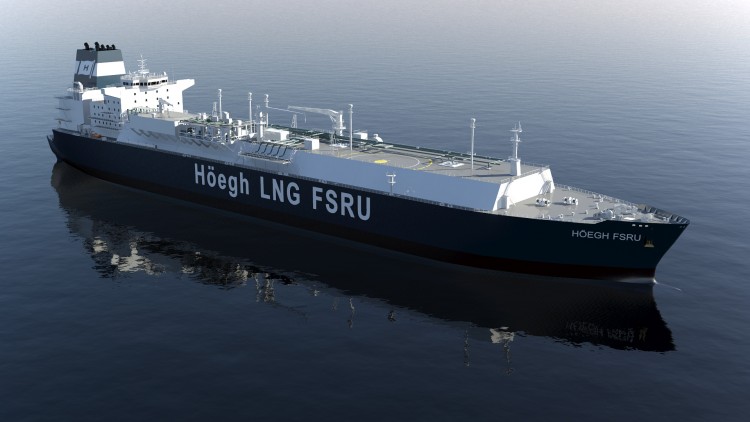The usage of Floating Storage Regasification Units (FSRUs) has been an asset for Egypt’s natural gas imports since 2015, when the country downgraded its position as a natural gas exporter to a net importer. Recent discoveries, however, forecast an output boom that will enable Egypt to entirely cover its domestic demand with local supply by late 2018. The expected rupture with natural gas imports and the prospects of regaining its position as an exporter led the natural gas industry to rethink FSRUs’ usage, looking at it as an essential tool to help Egypt become a regional energy hub.
The Consumption Equation
Egypt’s production by January 2018 is expected to rise from 5.1 billion cubic feet per day (bcf/d) to 5.4 bcf/d, according to a statement by the Chairman of the Egyptian General Petroleum Company (EGPC), Abed Ezz El-Regal. Furthermore, Gamal Kaliouby, a leading international energy expert and a professor of petroleum engineering, expects production to 6.4 bcf/d by June 2018, a level that would almost cover the country’s consumption levels.
On the other hand, natural gas demand is forecast to rise as well to reach 6.37 bcf/d according to CI Capital, a close estimate to the planned production level of 6.2-6.4 bcf/d of 2018.
While the nation has plans to reach self-sufficiency by 2018, and begin exports by 2019, reality is Egypt may still need to import Liquefied Natural Gas (LNG) for the coming couple of years.
However, with promising production hikes, Egypt may soon eliminate LNG imports altogether, leaving its two Floating Storage Regasification Units (FSRUs) mostly unneeded.
The Role of FSRUs
The Egyptian Natural Gas Holding Company(EGAS), had chartered two FSRUs, the first of which is Höegh Gallant, arrived in April 2015 with a regasification capacity of 0.5 bcf/d; and the second is BW Singapore, delivered in September 2015 with a peak regasification capacity of 0.75 bcf/d. Both units have a total rental value of $320,000 per day.
Currently, Egypt only utilizes 50% of the FSRUs combined capacity, which is expected to further decrease, Mohamed Khafagy, General Manager of Natural Gas and Economic Affairs in EGAS told Egypt Oil & Gas.
As Tarek El Molla, Minister of Petroleum and Mineral Resources, announced the state’s plans to halt all LNG imports by 2018, the outlook for the need for FSRUs in imports is quickly dimming up; however, some experts believe that they can be a vital arm in the country’s dreams to become a regional natural gas hub. “The new law and authority will certainly improve the flexibility of Egypt’s gas market, allowing Egypt to surpass Turkey, a possible competitor, that aspires to become a regional gas hub, FSRUs are essential for this to happen, as it will take long time and large finances to establish onshore LNG terminals,” said Osama Kamal, former Petroleum Minister.
Furthermore, a core use for the FSRUs lies in private LNG imports. As the government aims at liberalizing its natural gas market, allowing private companies to begin importing natural gas. So far three companies have received initial permits to import and distribute natural gas, including TAQA Arabia, Fleet Energy, and BB Energy; in addition, to four other companies in the process of obtaining the initial approval, including Toyota, Eng. Amira El Mazni, then Vice Chairman for the Gas Regulatory Authority told Egypt Oil & Gas.
While its need as a government import tool is quickly diminishing, Egypt’s two FSRUs have a crucial role in aiding the country in its pursuit to liberalize its market, as well as expanding the country’s import/export facilities, further connecting it to Europe.








